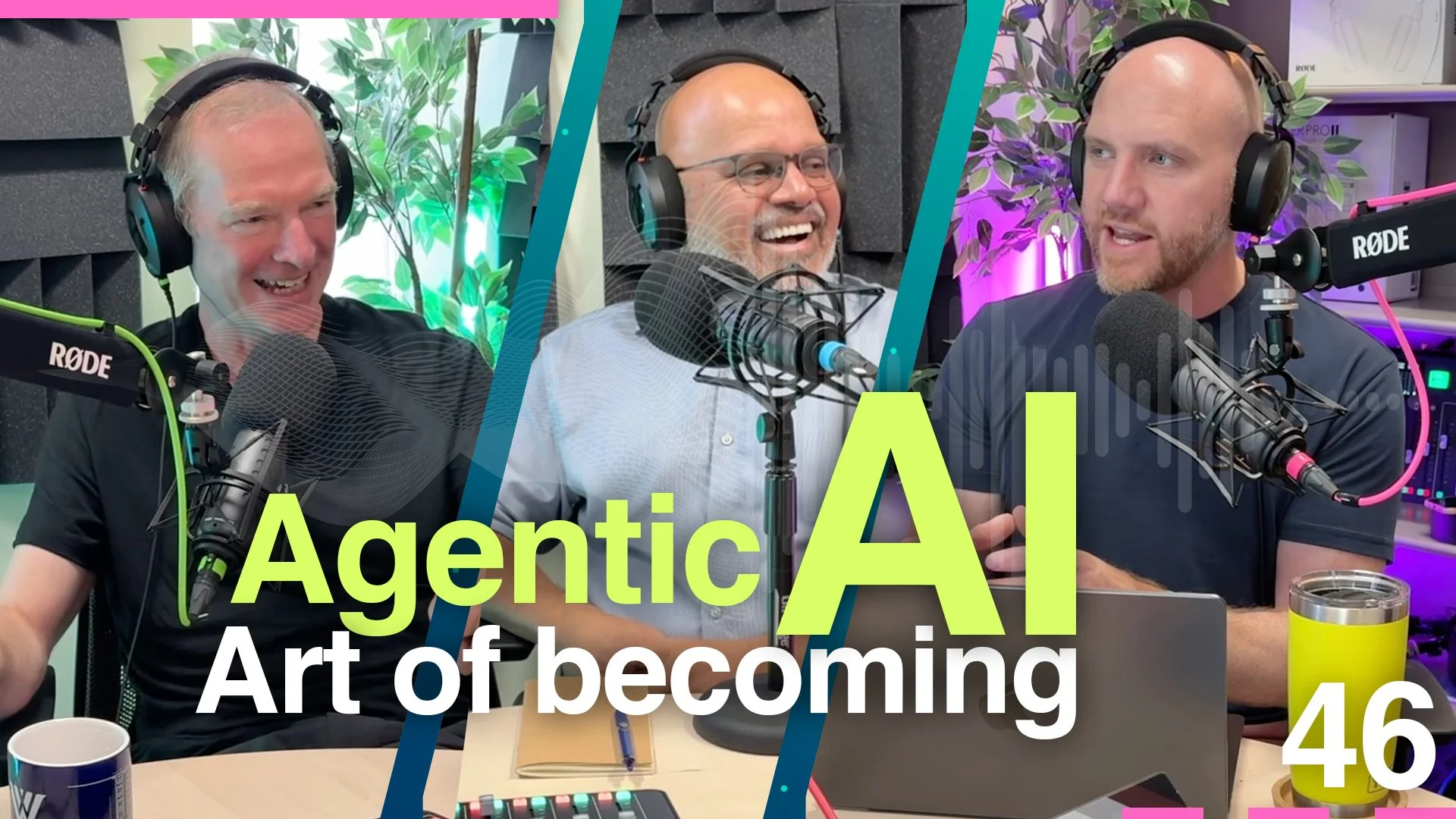Agentic AI ≠ Automated Learning: Building Real Student Agency
What if AI “agents” did 30% of a student’s work—would the student still be learning? In this week’s Modem Futura, hosts Sean Leahy and Andrew Maynard sit down with ASU’s Punya Mishra for a lively, practical look at agentic AI—not as dashboards and nudges, but as tools that help people become. It’s a warm, grounded conversation for educators, ed‑leaders, parents, and anyone shaping the future of learning.
In this episode, we explore the distinction between agentic AI and automation: if an AI writes the paper, who is developing judgment, taste, and identity? We unpack why offloading tasks is not the same as cultivating agency. Drawing on John Dewey’s four natural impulses—inquiry, construction, communication, and expression—and Seymour Papert’s call for “playgrounds, not playpens,” we frame learning with AI as making and meaning, not simply “study mode.” Punya shares how he used AI to begin reading Odia in order to engage with his mother’s writing, a story that illustrates motivation over gamification—depth no badge can match.
We also challenge “learning management” mindsets, emphasizing that courses are crafted experiences that shape community and identity well beyond content delivery. We contrast classic intelligent tutoring systems with today’s large language models—the brittleness of the former versus the hallucinations of the latter—and identify where each genuinely helps learners. We examine the privacy, surveillance, and “efficiency” traps that datafication creates in schools, making the case for transparent, local, personal AIs—with an explicit kill switch. Finally, we underscore that craft and creativity still matter: Sean’s Final Cut Pro example shows how AI auto‑courses can nail mechanics yet miss the art (think J/L cuts), reminding us that human taste and critique remain essential.
Why this matters
Education is not a pipeline to “becoming X.” It’s a lifelong process of becoming—discovering interests, building capability, and strengthening belonging. AI is powerful precisely when it amplifies these human aims. Our invitation: design AI‑supported playgrounds where learners build, reflect, and share—safely and with agency.
🎧 Listen & share: If you care about AI’s role in real learning, this episode is for you. Share it with a teacher, professor, or parent who’s wrestling with where AI truly helps—and where it doesn’t.
🎧 Listen on Apple Podcasts: https://apple.co/4mA5z6x
📺 Watch us on YouTube: https://www.youtube.com/@ModemFutura
If you’d like to dive deeper, jump into the link and listen to the podcast or watch the YouTube video. Join us as we explore the forces shaping our collective future and the urgent need to keep human values at the heart of innovation.
Subscribe and Connect!
Subscribe to Modem Futura on a favorite podcast platform, follow on LinkedIn, and join the conversation by sharing thoughts and questions. The medium may still be the massage, but everyone has a chance to shape how it kneads modern culture—and to decide what kind of global village we ultimately build.
🎧 Apple Podcast: https://apple.co/4mA5z6x
🎧 Spotify: https://open.spotify.com/episode/5HBXeUCV9Qf02NqKOfQ7WO?si=DE2hVgX4T_eETxaDxd_vjg
📺 YouTube: https://youtu.be/7FRPXozBEYI
🌐 Website: https://www.modemfutura.com/



